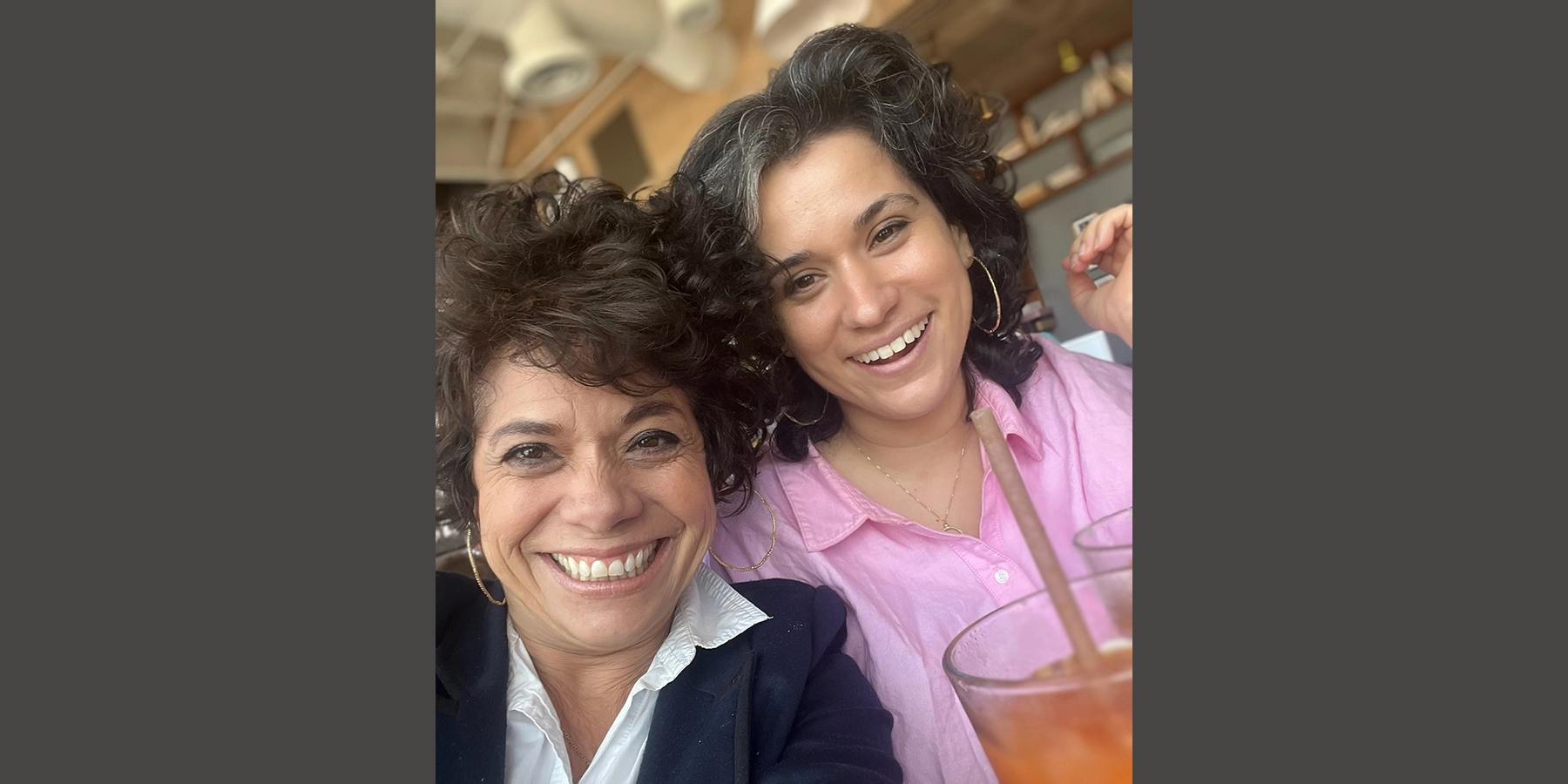Breast Cancer Survival: Mothers Know Best

At first, Cristina Safille didn’t give much thought to the slight pain in her upper arm and chest. She wouldn’t even mention it at a 2022 OB-GYN appointment. At the time, the 33-year-old Plantation resident was 33 weeks pregnant with her sixth child. She assumed the discomfort was due to breast changes related to the pregnancy.
“I mentioned it as I was walking out the door,” she says. “I thought it wasn’t a big deal.”
Her advanced practice registered nurse (APRN) asked to examine her. To Safille’s surprise, the APRN recommended an ultrasound and mammogram. Safille thought it unnecessary, but she scheduled the tests. Immediately after the ultrasound, the technician ran out of the room to grab the doctor on the floor.
“I was like, ‘OK, I guess this is kind of a big deal,’” says Safille.
She had a mammogram that day. Two days later, a biopsy confirmed breast cancer.
At 34 weeks and two days, Safille’s daughter was delivered by C-section and went straight to neonatal intensive care while Safille started chemotherapy. Disappointed with the care she received, Safille and her mother, Maria Francois, began searching for another oncologist.
Francois knew people treated by Alejandra T. Perez, M.D., medical director of the Braman Family Breast Cancer Institute at Sylvester Comprehensive Cancer Center, part of the University of Miami Health System. “I made a few calls,” says Francois. “I have a lot of friends in the community, and everyone directed me to Dr. Perez. They said wonderful things about her.”
Dr. Perez, an associate professor of clinical medicine at the University of Miami Miller School of Medicine, ordered a PET scan that confirmed stage 4 metastatic cancer had moved to Safille’s bones. Subsequent imaging found the cancer was in her chest.
To date, Safille has undergone two rounds of chemotherapy, a bilateral salpingo-oophorectomy (surgery to remove both ovaries and both fallopian tubes) and immunotherapy. Now, she is back on chemotherapy for tumors in her liver.
“There are so many advances in medicine. I don’t have a ton of nausea,” she says, although she has been experiencing fatigue, dizziness and, most recently, hair loss. Her inner strength and confidence, however, are undimmed.
“Hopefully,” she says, “the next PET scan will show those tumors are shrinking.”
Francois works as a realtor and always fits Cristina’s appointments into her schedule.
“My mom is a supermom,” Safille says.” She goes with me to my treatments while my husband holds down the fort, or she is with the kids.”
Safille underwent genetic counseling and testing after her diagnosis.
Her test revealed a BRCA2 gene mutation. She told her family so they could be tested, too. One of Safille’s two sisters died in a car accident, but she had a melanoma lesion removed at age 17, a conspicuously young age for melanoma.
“We assume she had a BRCA2 mutation, too,” says Safille. Francois tested positive for the BRCA2 mutation. She now sees Dr. Perez for alternating mammograms and breast MRIs every six months. Safille’s surviving sister doesn’t have the mutation.
I want people to ask questions about family history. Don’t be afraid to ask about your grandmother, your mother.
Cristina Safille, patient of Dr. Alejandra Perez
Safille and Francois met with a genetic counselor who created an in-depth family tree to determine the mutation’s origin.
“My grandmother probably also had the BRCA2 mutation because she had ovarian cancer,” says Safille.
But there’s no way of knowing for sure. When her grandparents fled Cuba, they didn’t bring much with them. Their medical histories were left behind.
“Children of parents with a genetic mutation should have genetic counseling and testing,” says Dr. Perez. “If we identify a mutation, we follow them in our high-risk clinics and develop a personalized plan for surveillance and risk-reduction strategies.”
Dr. Perez stresses the importance of support networks for cancer patients.
“It is well known that support from family and friends can improve outcomes and quality of life,” says Dr. Perez. “Some studies looking at participation in support groups have shown improved survival. Cristina’s mom is always present at every appointment, asking the right questions and advocating for her daughter.”
This Mother’s Day, Cristina will throw out the first pitch at the Miami Marlins game. Dr. Perez recommended her for the honor.
“The bond between a mother and her daughter is very strong, and the support Cristina gets from her mother is priceless,” says Dr. Perez.
Louis Greenstein is a contributor for Sylvester Comprehensive Cancer Center.
Tags: breast cancer care in Miami, Dr. Alejandra Perez, genetic counseling, Miami Marlins, Sylvester Comprehensive Cancer Center
